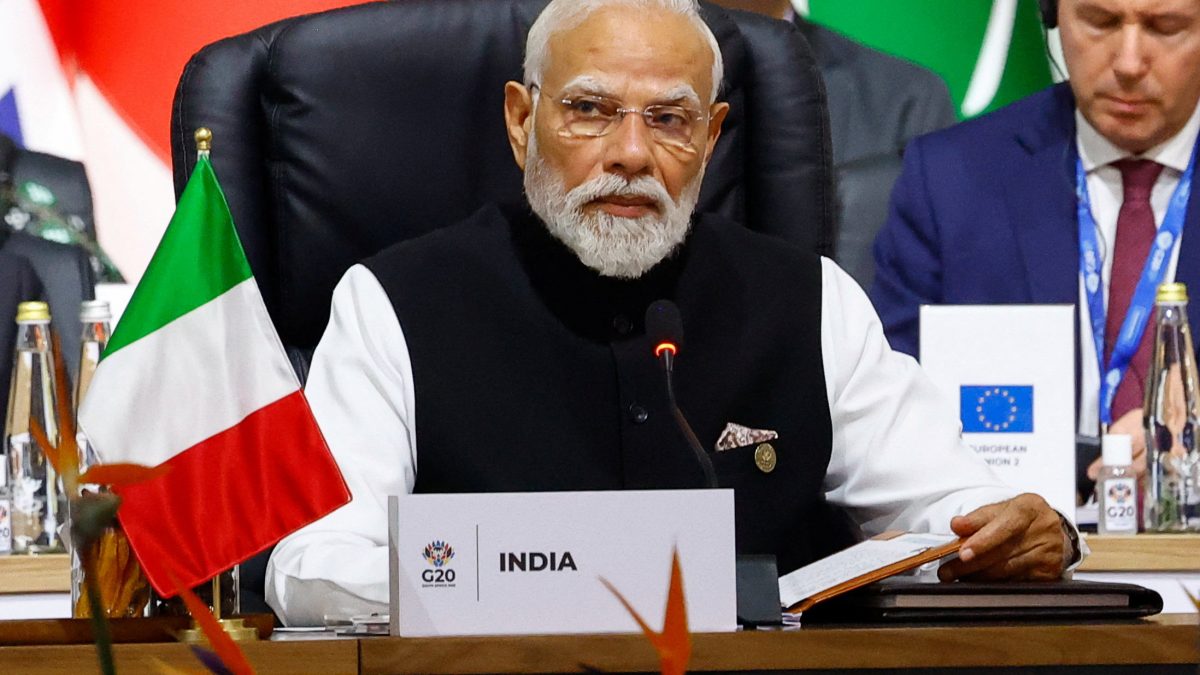Prime Minister Narendra Modi on Saturday outlined India’s vision for a series of G20-led initiatives at the 20th G20 Summit in Johannesburg, urging member nations to work together on dismantling the drug–terror nexus, strengthening global health responses, and expanding skill development across Africa.
Addressing the first plenary session focused on inclusive and sustainable growth, Modi said, “To overcome the challenge of drug trafficking, especially the spread of extremely dangerous substances like fentanyl, India proposes a G20 Initiative on Countering the Drug–Terror Nexus. Let us weaken the wretched drug-terror economy.”
The proposed initiative aims to integrate financial, governance and security tools to disrupt networks that fund terrorism through narcotics.
Modi also pushed for establishing a G20 Global Healthcare Response Team, designed to bring together trained medical specialists from G20 countries for rapid deployment during health emergencies and natural disasters. “We are stronger when we work together in the face of health emergencies and natural disasters,” he said.
Quick Reads
View AllReiterating India’s support for Africa, Modi stressed that Africa’s development is central to global progress.
“India has always stood in solidarity with Africa. I am proud of the fact that it was during India’s G20 Presidency that the African Union became a permanent G20 member. Taking forward this spirit, India proposes a G20-Africa Skills Multiplier Initiative. Our collective goal should be to create 1 million certified trainers in Africa within the next decade,” he said.
Modi further proposed the creation of a G20 Global Traditional Knowledge Repository, noting India’s long history of traditional knowledge systems. “India has a rich history in this regard. This will help us pass on our collective wisdom to further good health and wellbeing,” he said.
In his opening session remarks, Modi said on X that “NOW is the right moment for us to revisit our development parameters and focus on growth that is inclusive and sustainable,” adding that India’s civilisational ethos, particularly the principle of Integral Humanism, “offers a way forward.”
He said he had presented “a few actionables to realise our dream of all-round growth,” starting with the traditional knowledge repository, which he said would help countries share inherited systems that promote “good health and wellbeing.”
)